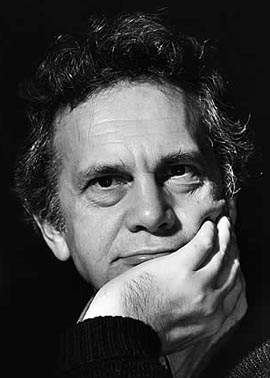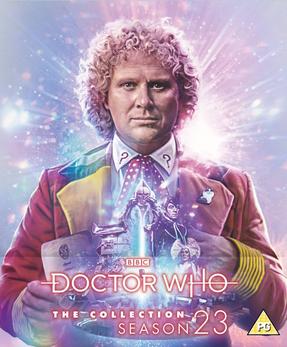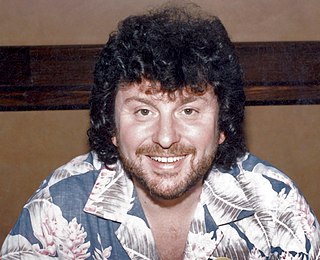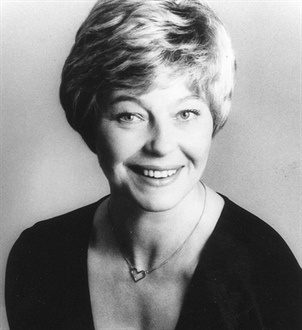
Up Pompeii! is a British television comedy series set in ancient Pompeii and broadcast between 1969 and 1970, starring Frankie Howerd. The first series was written by Talbot Rothwell, a scriptwriter for the Carry On films, and the second series by Rothwell and Sid Colin. Two later specials were transmitted in 1975 and 1991 and a film adaptation was released in 1971.

Colin Charles Baker is an English actor. He played Paul Merroney in the BBC television drama series The Brothers from 1974 to 1976 and the sixth incarnation of the Doctor in the long-running science fiction television series Doctor Who from 1984 to 1986. Baker's tenure as the Doctor proved to be a controversial era for the series, which included a hiatus in production and his subsequent replacement on the orders of BBC executive Michael Grade. His performances as the Sixth Doctor in audio plays published by Big Finish Productions have been generally well received by fans.

Daniel Raymond Massey was an English actor and performer. He is possibly best known for his starring role in the British TV drama The Roads to Freedom, as Daniel, alongside Michael Bryant. He is also known for his role in the 1968 American film Star!, as Noël Coward, for which he won a Golden Globe Award and an Oscar nomination.

Our Friends in the North is a British television drama serial produced by the BBC. It was originally broadcast in nine episodes on BBC2 in early 1996. Written by Peter Flannery, it tells the story of four friends from Newcastle upon Tyne over a period of 31 years, from 1964 to 1995. The story makes reference to certain political and social events which occurred during the era portrayed, some specific to Newcastle and others which affected Britain as a whole. These include general elections, police and local government corruption, the UK miners' strike (1984–85), and the Great Storm of 1987.

The twenty-third season of British science fiction television series Doctor Who, known collectively as The Trial of a Time Lord, aired in weekly episodes from 6 September to 6 December 1986. It contained four adventures: The Mysterious Planet, Mindwarp, Terror of the Vervoids and The Ultimate Foe; the season also marked the final regular appearance of Colin Baker as the Sixth Doctor.

State of Play is a British television drama series, written by Paul Abbott and directed by David Yates, that was first broadcast on BBC One in 2003. The series tells the story of a newspaper's investigation into the death of a political researcher, and centres on the relationship between the leading journalist, Cal McCaffrey, and his old friend, Stephen Collins, who is a Member of Parliament and the murdered woman's employer. The series is primarily set in London and was produced in-house by the BBC in association with the independent production company Endor Productions. The series stars David Morrissey, John Simm, Kelly Macdonald, Polly Walker, Bill Nighy, and James McAvoy in the main roles.

Z-Cars or Z Cars was a British television police procedural series centred on the work of mobile uniformed police in the fictional town of Newtown, based on Kirkby, near Liverpool. Produced by the BBC, it debuted in January 1962 and ran until September 1978.

Play for Today is a British television anthology drama series, produced by the BBC and transmitted on BBC1 from 1970 to 1984. During the run, more than three hundred programmes, featuring original television plays, and adaptations of stage plays and novels, were transmitted. The individual episodes were between fifty and a hundred minutes in duration. A handful of these plays, including Rumpole of the Bailey, subsequently became television series in their own right.
John Richard Hopkins was an English film, stage, and television writer.
Doctor Who is a British television science fiction series, produced and screened by the BBC on the BBC TV channel from 1963 to 1964, and on BBC1 from 1964 to 1989 and since 2005. A one-off television film, co-produced with Universal Pictures was screened on the Fox Network in the United States in 1996.

Michael Dennis Bryant was a British stage and television actor.
The Roads to Freedom is a series of novels by French author Jean-Paul Sartre. Intended as a tetralogy, it was left incomplete, with only three complete volumes and part one of the fourth volume of the planned four volumes published in his lifetime and the unfinished second part of the fourth volume was edited and published a year after his death.

John Turner, known professionally as John Nathan-Turner, was an English television producer. He was the ninth producer of the long-running BBC science fiction series Doctor Who and the final producer of the series' first run on television. He finished the role having become the longest-serving Doctor Who producer and cast Peter Davison, Colin Baker and Sylvester McCoy as the Fifth, Sixth and Seventh Doctors, respectively.

Annette Badland is an English actress known for a wide range of roles on television, radio, stage, and film. She is best known for her roles as Charlotte in the BBC crime drama series Bergerac, Margaret Blaine in the BBC science fiction series Doctor Who, Mrs Glenna Fitzgibbons in the first season of Outlander, Babe Smith in the BBC soap opera EastEnders, and as Dr Fleur Perkins on the ITV mystery series Midsomer Murders. She was nominated for the Laurence Olivier Award for Best Actress in a Supporting Role in 1993 for her performance as Sadie in Jim Cartwright's play The Rise and Fall of Little Voice; a role she reprised in the 1998 film adaptation Little Voice.

Rosemary Anne Leach was a British stage, television and film actress. She won the 1982 Olivier Award for Best Actress in a New Play for 84, Charing Cross Road and was nominated for the BAFTA Award for Best Actress in a Supporting Role for her roles in the films That'll Be the Day (1973) and A Room with a View (1985).
The Way We Live Now is an adaptation of the 1875 novel The Way We Live Now by Anthony Trollope as a five-part serial for television. Adapted by Simon Raven and directed by James Cellan Jones, it was first broadcast in weekly episodes each Saturday evening on BBC Two, from 5 April to 3 May 1969.
Oxbridge Blues is a 1984 British television series, produced and broadcast in the UK by the BBC. It is an anthology of seven approximately 75-minute television plays by Frederic Raphael, most of which focus on relationships of one kind or another. Most of the plays except one take place in England; "He'll See You Now" takes place in the U.S., and "Sleeps Six" takes place in England and France. The series was broadcast in the U.S. on A&E in 1986 and on PBS in 1988. In Australia, the series was broadcast on ABC in 1987.
Kenith Trodd is a British television producer best known for his professional association with television playwright Dennis Potter.
Alan James Gwynne Cellan Jones was a British television and film director. From 1963, he directed over 50 television series and films, specialising in dramas.
David Turner was a British playwright.












